To the Amis, the green betel nut (locally called icep) is more than food; it embodies deeper symbolism. Its inner moisture and sweet flavor are compared to a mother’s milk, making it a symbol of motherhood. As times changed and health awareness grew, betel nuts gradually transformed from a substance for chewing into a source of creative and sustainable use.
One such example is Ching Ze, founded by local entrepreneur Chen Hung-Ting, who integrated Taitung Hot Air Balloon imagery with three-dimensional paper sculpture design to launch Taiwan’s first hot air balloon-shaped gift box. The product won the Food Innovation Awards’ highest honor—three stars—allowing Taitung’s local culture to take flight nationwide through its exquisite packaging.

(Photo credit: @osullivan.519)
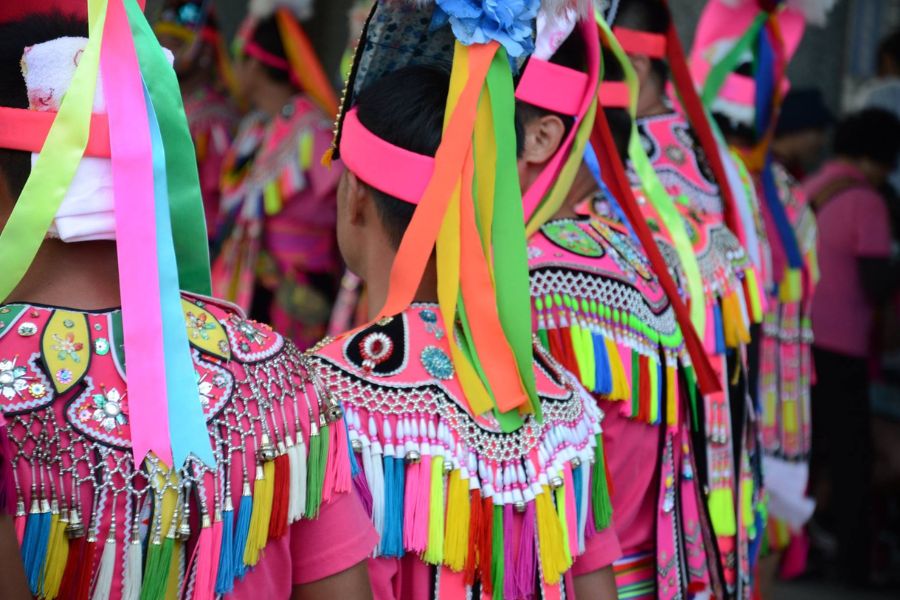
(Photo credit: Guanshan township)
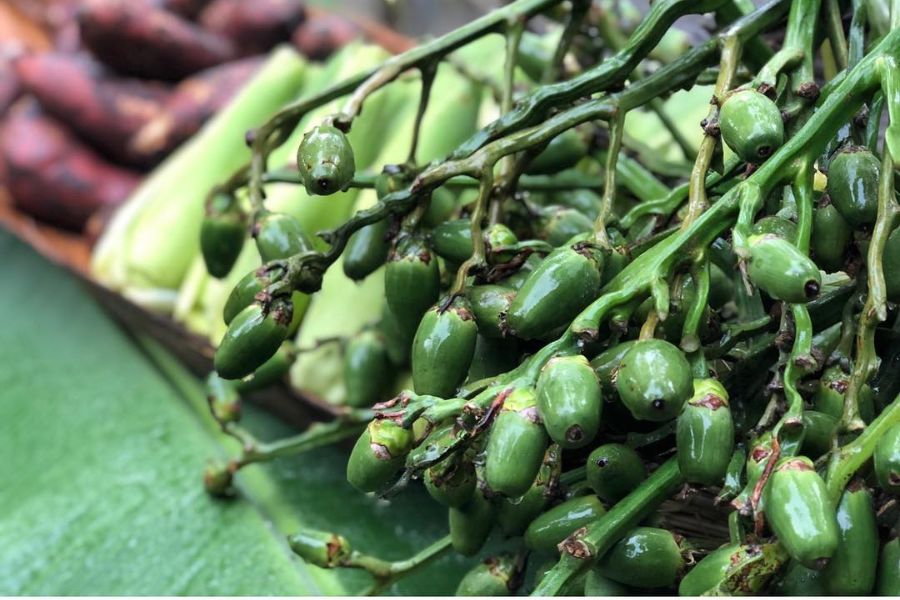
(Photo credit: @sosa_kecele)
Rediscovering the Betel Nut Tree Leaf
With growing awareness of health, chewing betel nuts has declined, yet the betel nut tree leaf (the sheath that naturally falls from the trunk) has found renewed purpose through Indigenous creativity. In the Amis language, the leaf has several distinct names: Baro refers to a freshly fallen sheath, Kalung is the sheath box made in Dulan Village, and Cifil denotes a betel nut leaf container used by Amis communities along the Hualien Coastline.
Once treated as agricultural waste, these naturally fallen leaves have now become valuable materials for creative expression. The practice of using every part of the tree—from trunk to fruit—embodies the Austronesian wisdom of sustainable living and coexistence with nature, reflecting a traditional ecological philosophy deeply rooted in craft.
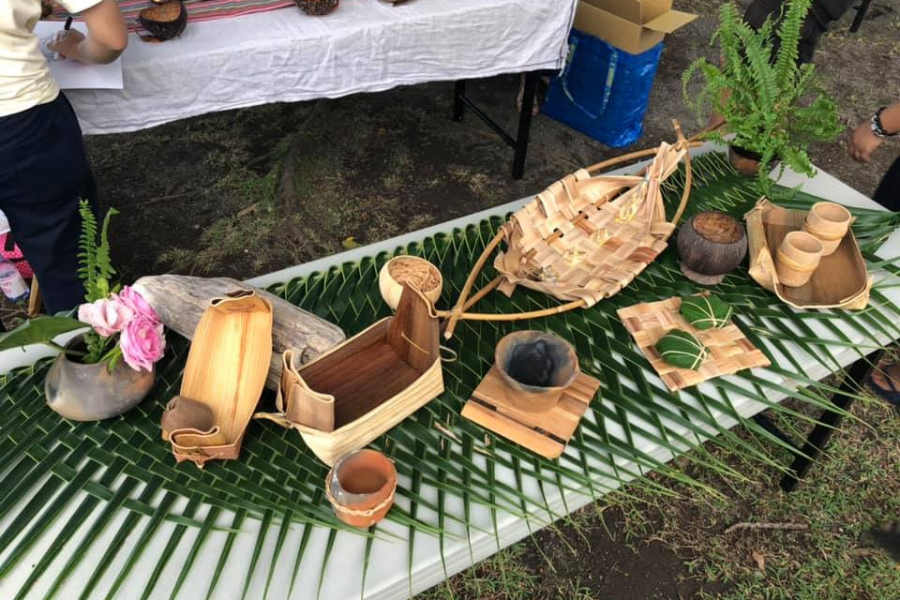
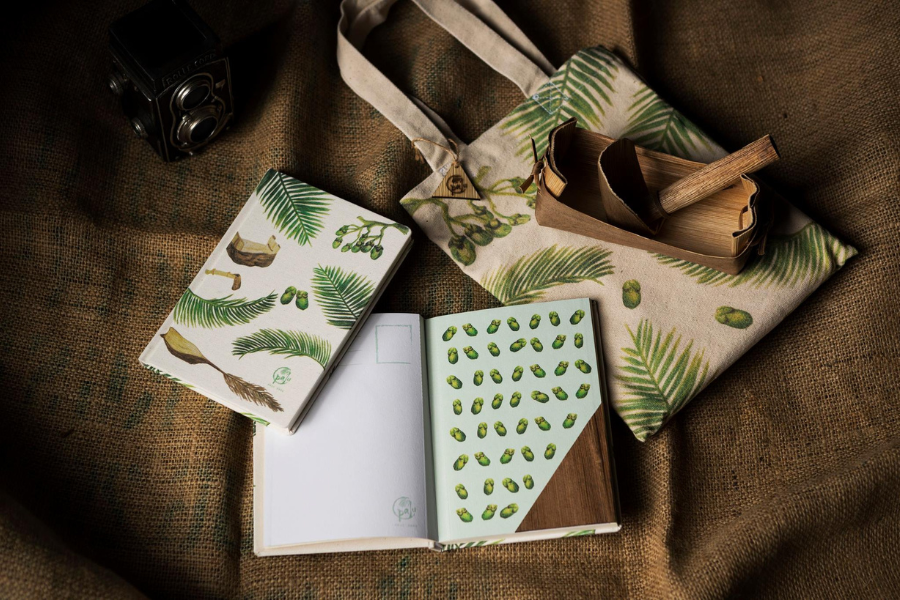
(Photo credit: Mima’an Studio )
Innovation at Mima’an Studio
Located in Dulan Village, Mima’an Studio was founded by Amis sisters Kao Sha-Sha and Kao Tsai-Shuang, who returned home to reconnect with their roots. The word Mima’an means “what to do” in Amis. They redesigned betel nut tree leaves into colorful modern products such as slippers, lamps, and storage boxes. Each piece celebrates the Amis people’s love for beauty while preserving the leaf’s natural textures and grain—making every creation truly one of a kind.
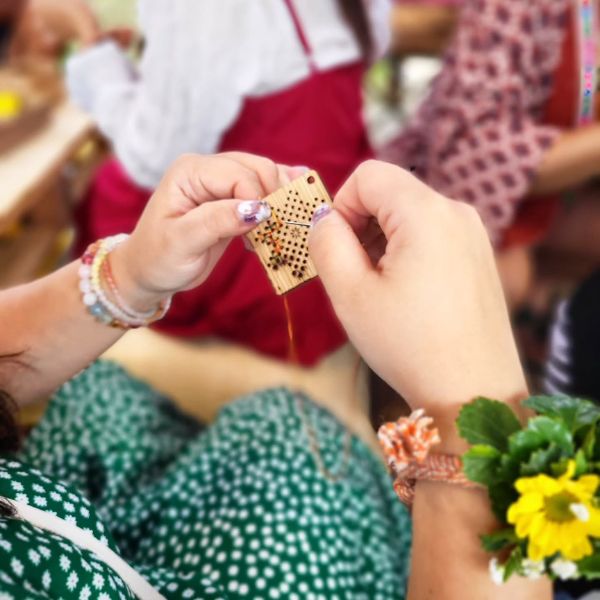
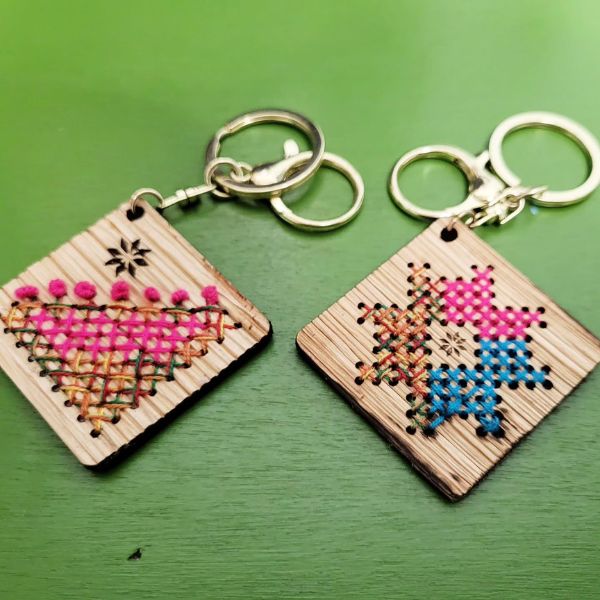
(Photo credit: @marcia02171 )
Cultural Dialogue and Sustainability
The philosophy of Mima’an Studio is deeply embedded in Amis tradition while embracing modern design aesthetics. The sisters once brought their handmade leaf slippers to a Thailand exhibition, where they discovered that local youth were also using betel nut materials to make lunch boxes. This cross-cultural resonance strengthened their belief in the global potential of betel nut crafts.
The studio uses no chemical coatings; all products are biodegradable and return naturally to the earth. As the founders said, “For Indigenous people, environmental protection isn’t a task—it’s simply a way of life.” Through their work, Mima’an Studio has created a dialogue between culture and nature, bringing new vitality to traditional craft and contributing to the cultural and creative industry of Taitung.
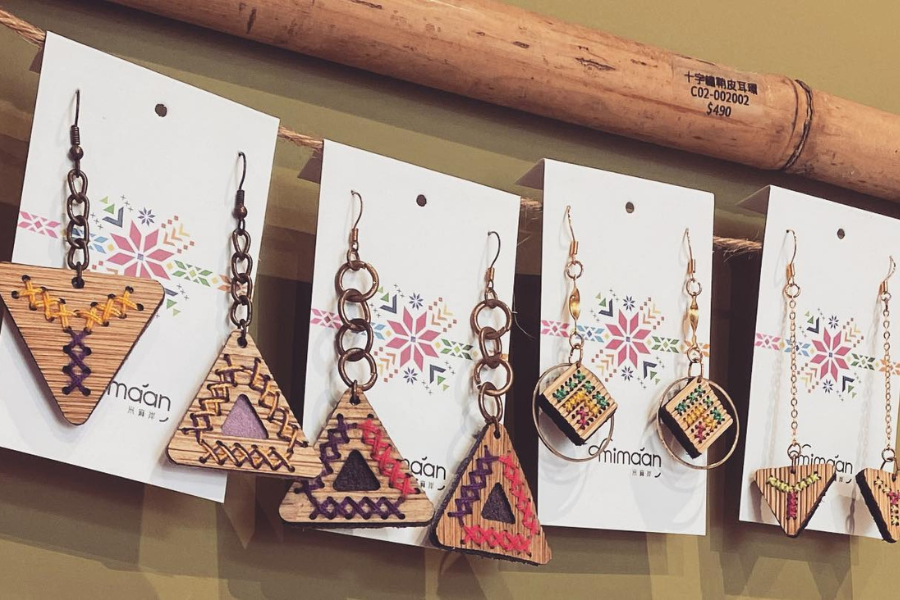
(Photo credit: Mima’an Studio )




